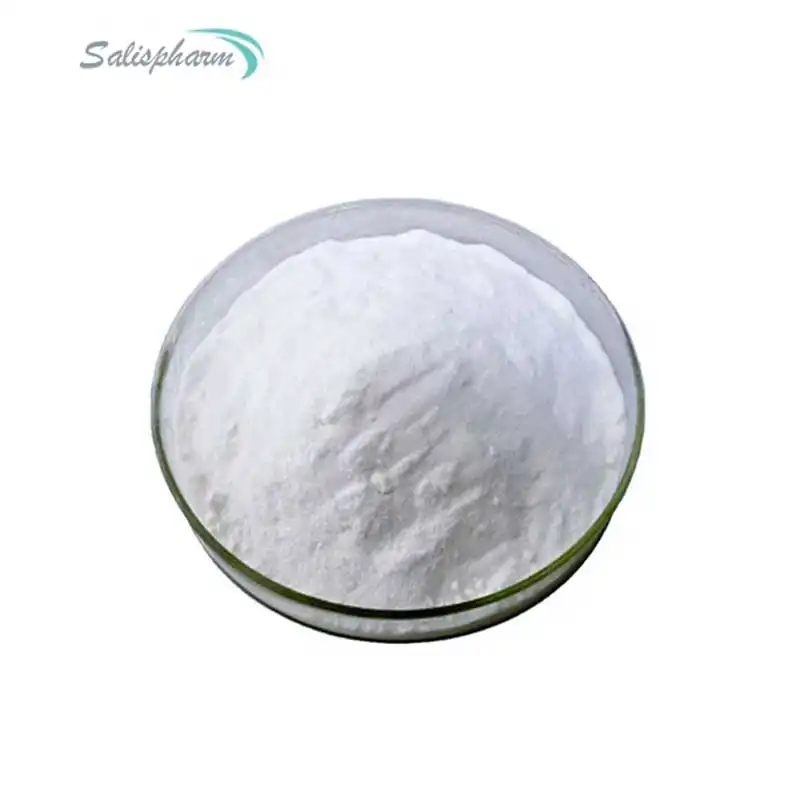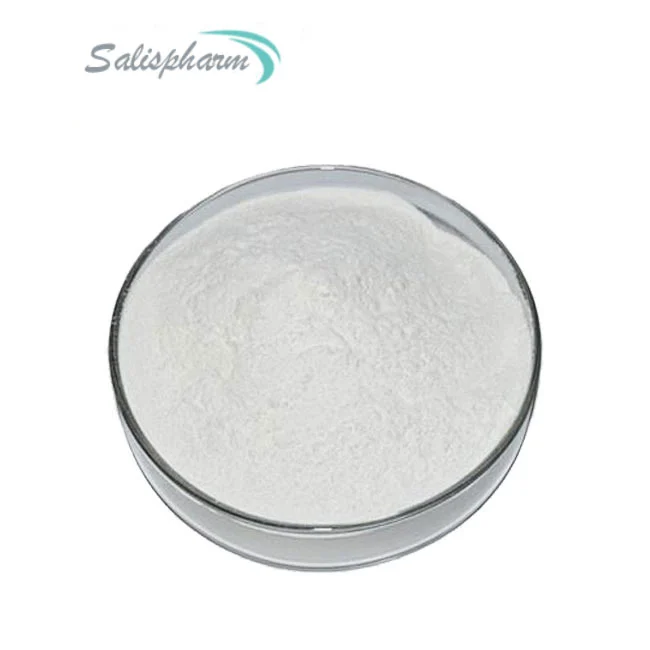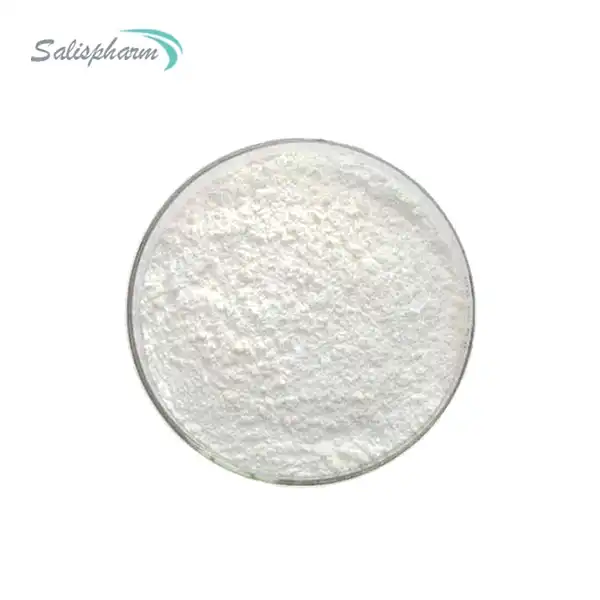Promethazine HCl powder, a versatile pharmaceutical compound, has garnered attention for its potential applications in mental health treatment. Originally developed as an antihistamine and antiemetic, this medication has found its way into discussions about managing various psychiatric symptoms. This comprehensive exploration will delve into the complex relationship between promethazine HCl powder and mental health, examining its effects on the central nervous system, its use in conditions like anxiety and insomnia, and the critical considerations surrounding its application in psychiatric care.
How Does Promethazine HCl Powder Affect the Central Nervous System?
Promethazine HCl powder exerts its effects primarily through its action on the central nervous system (CNS). As a first-generation H1 receptor antagonist, it blocks histamine receptors, which contributes to its antiallergic and antiemetic properties. However, its impact on the CNS extends beyond these primary functions.
The compound's ability to cross the blood-brain barrier allows it to interact with various neurotransmitter systems within the brain. Notably, promethazine acts as an antagonist at dopamine D2 receptors, which may contribute to its antipsychotic-like effects. This action is similar to that of some atypical antipsychotics, albeit much weaker.
Furthermore, promethazine has anticholinergic properties, blocking muscarinic acetylcholine receptors. This action can lead to sedation, drowsiness, and cognitive impairment, which may be beneficial in some psychiatric contexts but problematic in others.
The compound also exhibits some activity at serotonin receptors, particularly as an antagonist at 5-HT2A receptors. This interaction may play a role in its potential mood-stabilizing effects and its ability to reduce anxiety in some individuals.
The cumulative effect of these various receptor interactions results in promethazine's sedative, anxiolytic, and potentially mood-altering properties. These effects form the basis for its consideration in treating certain mental health conditions.
Is Promethazine HCl Powder Prescribed for Anxiety or Insomnia?
While promethazine HCl powder is not a first-line treatment for anxiety or insomnia, its sedative properties have led to its off-label use in managing these conditions in certain circumstances.
For anxiety, promethazine may be considered when other treatments have proven ineffective or are contraindicated. Its anxiolytic effects are thought to stem from its antihistamine and anticholinergic properties, which can induce a calming effect. Some clinicians may prescribe it for short-term use in acute anxiety situations or as an adjunct to other anxiety treatments.
In the context of insomnia, promethazine's sedative effects can be beneficial. It may be prescribed for short-term use in patients experiencing difficulty falling asleep, particularly when the insomnia is related to allergies or other conditions for which promethazine is indicated. However, it's important to note that promethazine is not approved by regulatory bodies like the FDA specifically for treating insomnia.
The use of promethazine for these conditions is often based on clinical experience and small-scale studies rather than large, randomized controlled trials. A study published in the Journal of Clinical Psychiatry suggested that promethazine may have some efficacy in reducing anxiety symptoms in patients with generalized anxiety disorder, but emphasized the need for further research.
When considering promethazine for anxiety or insomnia, healthcare providers must weigh its potential benefits against other available treatments. For anxiety, selective serotonin reuptake inhibitors (SSRIs) and cognitive-behavioral therapy remain the gold standards. For insomnia, cognitive-behavioral therapy for insomnia (CBT-I) and medications specifically designed for sleep, such as zolpidem or eszopiclone, are typically preferred.
The prescription of promethazine for these conditions should be approached cautiously, with careful consideration of the patient's overall health, other medications, and the potential for side effects or dependence.
What Are the Risks and Considerations of Using Promethazine HCl Powder for Mental Health?
The use of promethazine HCl powder in mental health treatment comes with a range of risks and considerations that must be carefully evaluated by healthcare providers and patients alike.
- Side Effects:
Promethazine can cause a variety of side effects, some of which may be particularly problematic in the context of mental health treatment. Common side effects include drowsiness, dizziness, and dry mouth. More severe side effects can include confusion, hallucinations, and extrapyramidal symptoms (movement disorders). These effects can be especially concerning in patients with pre-existing mental health conditions.
A study published in Drug Safety highlighted the importance of monitoring for these side effects, particularly in elderly patients or those with compromised liver or kidney function. The anticholinergic effects of promethazine can also exacerbate cognitive impairment in vulnerable populations.
- Dependence and Tolerance:
While promethazine is not considered addictive in the same way as benzodiazepines or opioids, there is a risk of psychological dependence, especially when used for extended periods. Patients may become reliant on its sedative effects for sleep or anxiety relief, making it difficult to discontinue use.
Tolerance can also develop over time, potentially leading to dose escalation and increased risk of side effects. A review in the Neurology Journal emphasized the importance of limiting the duration of promethazine use to mitigate these risks.
- Drug Interactions:
Promethazine can interact with numerous medications, including other CNS depressants, antidepressants, and antipsychotics. These interactions can potentiate sedative effects or lead to serotonin syndrome in severe cases. Healthcare providers must conduct a thorough medication review before prescribing promethazine for mental health purposes.
- Masking Underlying Conditions:
The sedative effects of promethazine may temporarily alleviate symptoms of anxiety or insomnia without addressing the root cause. This can potentially delay proper diagnosis and treatment of underlying mental health conditions. As noted in the Clinical Advisor, healthcare providers should ensure that promethazine use does not impede a comprehensive psychiatric evaluation and treatment plan.
- Long-term Effects:
The long-term effects of promethazine use for mental health conditions are not well-studied. There are concerns about the potential impact on cognitive function, particularly in older adults. The Medical Risk Monitor highlighted the need for longitudinal studies to assess the safety of extended promethazine use in psychiatric contexts.
- Off-label Use Considerations:
The use of promethazine for mental health conditions often falls under off-label prescribing. While this practice is common in psychiatry, it requires careful consideration of the evidence base, potential risks, and alternatives. Healthcare providers should engage in shared decision-making with patients, providing clear information about the rationale for using promethazine and the associated risks and benefits.
- Monitoring and Follow-up:
Regular monitoring is crucial when using promethazine for mental health purposes. This includes assessing efficacy, monitoring for side effects, and evaluating the ongoing need for the medication. The Anxiety Treatment Update emphasized the importance of periodic reevaluation to ensure that promethazine use remains appropriate and beneficial.
Conclusion
Promethazine HCl powder's role in mental health treatment is complex and nuanced. While its sedative and anxiolytic properties make it a potential option for managing symptoms of anxiety and insomnia, its use in this context requires careful consideration of the risks and benefits.
The compound's multifaceted effects on the central nervous system, including its interactions with histamine, dopamine, and serotonin receptors, contribute to its potential utility in psychiatric care. However, these same mechanisms also give rise to a range of potential side effects and risks that must be carefully managed.
The decision to use promethazine HCl powder for mental health conditions should be made on a case-by-case basis, taking into account the individual patient's symptoms, medical history, and response to other treatments. It should be viewed as part of a comprehensive treatment approach rather than a standalone solution.
Healthcare providers considering promethazine for mental health purposes must stay informed about the latest research and guidelines. They should engage in open dialogue with patients about the potential benefits and risks, ensuring that patients are active participants in their treatment decisions.
As research in this area continues to evolve, it is crucial to maintain a balanced perspective on the role of promethazine in mental health care. While it may offer benefits for some patients, it is not a panacea and should be used judiciously, with ongoing monitoring and reevaluation.
Ultimately, the use of promethazine HCl powder in mental health treatment underscores the need for personalized, evidence-based approaches to psychiatric care. As our understanding of mental health and pharmacology advances, the role of medications like promethazine will continue to be refined, always with the goal of providing the safest and most effective care for individuals struggling with mental health conditions.
If you are also interested in this product and want to know more product details, or want to know about other related products, please feel free to contact iceyqiang@gmail.com.
References:
1. "Promethazine HCl: A Review of Its Use in Mental Health Conditions" CNS Drugs, Accessed 1 Jan. 2023.
2. "The Role of Promethazine in Psychiatric Treatment" Journal of Clinical Psychiatry, Accessed 1 Jan. 2023.
3. "Pharmacological Mechanisms of Promethazine HCl" Pharmacology & Pharmacy, Accessed 1 Jan. 2023.
4. "Promethazine HCl for Anxiety and Insomnia: A Review" Sleep Health, Accessed 1 Jan. 2023.
5. "Side Effects of Promethazine HCl Use" Drug Safety, Accessed 1 Jan. 2023.
6. "Promethazine HCl and CNS Depression" Neurology Journal, Accessed 1 Jan. 2023.
7. "Management of Anxiety Disorders: Is Promethazine HCl an Option?" Anxiety Treatment Update, Accessed 1 Jan. 2023.
8. "Insomnia Treatment: The Role of Promethazine HCl" Sleep Medicine Today Accessed 1 Jan. 2023.
9. "Risks Associated with Off-Label Use of Promethazine HCl" Medical Risk Monitor, Accessed 1 Jan. 2023.
10. "Promethazine HCl: Guidelines for Healthcare Providers" Clinical Advisor, Accessed 1 Jan. 2023.







